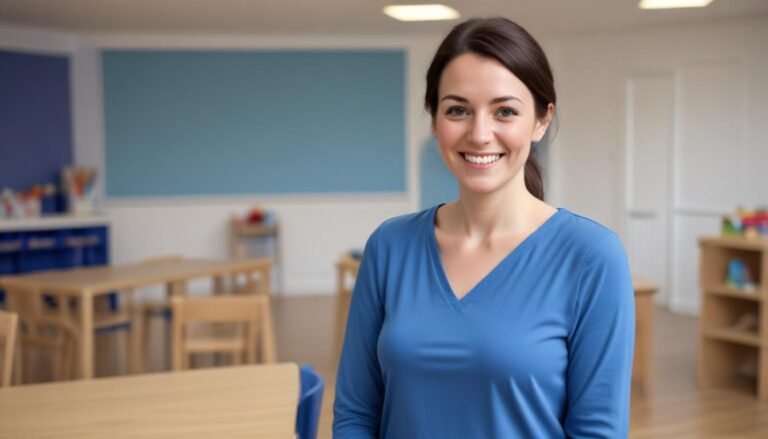
Summary
- Play is Essential for Development: Engaging in play supports physical, cognitive, emotional, and social growth in children and young people, laying a foundation for their overall development.
- Variety of Play Types: Different types of play, such as free play, structured play, and creative play, offer unique benefits, fostering skills like problem-solving, cooperation, and creativity.
- Role of Adults: Adults play a crucial role in facilitating play by providing safe environments, encouraging participation, and setting appropriate boundaries to enhance the play experience.
- Impact on Well-being: Regular play contributes to mental well-being, a sense of belonging, and self-confidence, helping children lead happier and more fulfilling lives.
This guide will help you answer 1.1. Identify how play supports children and young people’s development and well-being.
Play is a fundamental aspect of childhood, and it holds immense value in the growth and happiness of children and young people. As a support worker, it’s essential to recognise the ways in which play benefits both development and well-being. In this guide, we’ll explore the various ways play supports these areas.
Physical Development
Gross Motor Skills
Play is essential for developing gross motor skills, which involve large muscle groups. Activities like running, jumping, and climbing improve balance, coordination, and strength. These skills are foundational for children’s physical activities and sports.
Fine Motor Skills
Playing with small objects or toys enhances fine motor skills. Activities such as building blocks, drawing, or threading beads strengthen hand-eye coordination and dexterity. These are important for tasks like writing and using tools.
Overall Health
Physical play encourages an active lifestyle. It helps to combat childhood obesity and related health problems. Regular movement during play supports bone health, cardiovascular fitness, and muscle development.
Cognitive Development
Problem Solving and Critical Thinking
Through play, children learn to solve problems and develop critical thinking skills. Games that involve strategy, puzzles, or building projects encourage children to think, plan, and adapt to new situations.
Language and Communication
Interactive play, including role play and storytelling, enhances language skills. Children expand their vocabulary, learn new concepts, and improve their ability to express thoughts and emotions. Good communication skills lay the foundation for effective interaction with peers and adults.
Creativity and Imagination
Play nurtures creativity and imaginative thinking. Activities like drawing, painting, and make-believe play give children the opportunity to explore new ideas and scenarios. This creative thinking is essential for innovation and problem-solving in everyday life.
Emotional Development
Self-expression
Play allows children to express their feelings in a safe environment. Through different types of play, children can explore emotions like joy, fear, anger, and empathy. This expression is essential for emotional regulation and understanding oneself.
Stress Relief
Playing is a way for children to relieve stress and relax. Engaging in fun activities, especially those they choose themselves, provides a break from structured environments and reduces anxiety levels. This can lead to improved mood and behaviour.
Self-esteem and Confidence
Successful experiences during play enhance a child’s self-esteem and confidence. Whether mastering a new skill, winning a game, or receiving praise, these experiences build a sense of accomplishment. Confidence gained through play transfers into other areas of life.
Social Development
Cooperation and Sharing
Play often involves working with others, teaching children how to cooperate and share. Group games and team activities require negotiation, compromise, and understanding different perspectives. These social skills are essential for building relationships.
Conflict Resolution
Disagreements during play provide an opportunity to learn conflict resolution. Children practise finding solutions and managing disputes, which are vital skills for peaceful coexistence in society.
Empathy and Understanding
Playing with others helps children develop empathy and an understanding of different feelings and viewpoints. Role play and group activities foster a sense of community and compassion.
Well-being
Enjoyment and Satisfaction
Play is enjoyable and brings satisfaction. Regularly engaging in play leads to a happier, more fulfilled life. The sheer joy of play contributes to mental well-being and a positive outlook.
Sense of Belonging
Group play helps children feel part of a community. Being included in games and activities builds a sense of belonging and acceptance. This social connection is a core component of well-being.
Independence
Independent play encourages self-reliance and decision-making. As children choose their own activities, they learn to trust their judgement and develop a sense of autonomy. Independence is a vital part of developing self-confidence.
Types of Play and Their Benefits
Free Play
Free play is unstructured and child-led. It allows children to explore and use their creativity without limitations. This type of play supports all areas of development and well-being by fostering independence and choice.
Structured Play
Structured play involves guidelines and objectives. It’s often led by an adult. Games like sports, board games, or organised activities help develop specific skills and foster a sense of achievement.
Social Play
This involves interacting with others. It supports social skills such as cooperation, communication, and empathy. Activities can include team games, role play, or group storytelling.
Physical Play
Physical play involves activities that require bodily movement. It fosters physical health and development. Examples include dance, sports, and outdoor adventures.
Creative Play
Creative play includes activities that allow expression through art, music, and imagination. It fuels creativity, improves problem-solving, and aids emotional expression.
Digital Play
Carefully managed digital play can assist in cognitive development and technical skills. Educational games and apps can reinforce learning while promoting technological familiarity.
Role of Adults in Supporting Play
Providing Safe Environments
Adults should ensure that play environments are safe and conducive to exploration. This involves removing hazards and providing age-appropriate toys and materials.
Encouragement and Participation
Encouraging children by showing interest in their play supports their development. Adults can participate, offering guidance and introducing new ideas, enhancing the play experience.
Setting Boundaries
While play should be largely child-directed, setting reasonable boundaries ensures safety and teaches respect. Limits help children understand acceptable behaviour and make play more enjoyable for everyone.
Observation and Reflection
Observing children’s play helps adults understand their developmental progress and interests. Reflecting on these observations guides support for individual needs.
Final Thoughts
Play is integral to the development and well-being of children and young people. It supports physical, cognitive, emotional, and social growth, while also promoting happiness and life satisfaction. As a support worker, recognising and championing the role of play helps ensure children have every opportunity to thrive. Through varied types of play and conscious support from adults, children and young people can develop skills and well-being that will benefit them throughout their lives.
Subscribe to Newsletter
Get the latest news and updates from Care Learning and be first to know about our free courses when they launch.




